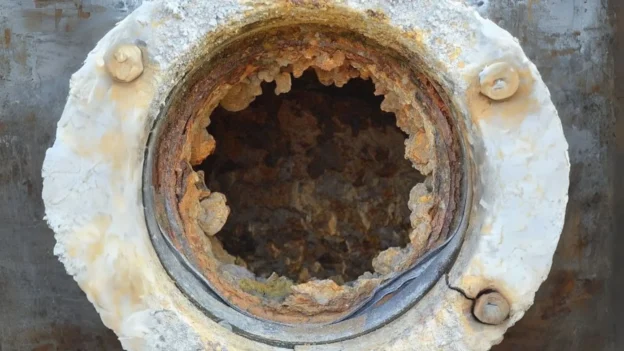A team of researchers at the University of South Australia(UniSA) are developing a type of concrete with characteristics to resist the acid and microbial corrosion that severely affects sewer networks.
Conversion of water waste into ecological concrete
The new material improves compressive strength by more than 50% over pure slag formulations, and has better protection against the penetration of sulfuric bacteria. This is essential for extending pipe life and reducing the high maintenance costs associated with chemical deterioration of concrete. chemical deterioration of concrete..
The sludge used, normally disposed of in landfills, is rich in alum. By using them as an active component in alkaline activated materials(AAM), they are given a second life that contributes to the circular economy. In addition, this reuse reduces CO₂ emissions generated by their transport and final disposal.
In the case of South Australia, where there are more than 9,000 kilometers of sewer pipes, this solution could mean a substantial reduction in repair costs. On a global scale, where sewer networks could encircle the globe several times over, the impact could be even greater if this technology is adopted.
D. candidate Weiwei Duan, a key player in this development, was awarded the Australian Water Association’ s 2025 Student Water Prize . This achievement highlights the scientific value of the project, and establishes UniSA as a benchmark in sustainable innovation applied to infrastructure.
Follow us on social networks and don’t miss any of our publications!
YouTube LinkedIn Facebook Instagram X (Twitter) TikTok
Source and photo: University of South Australia

